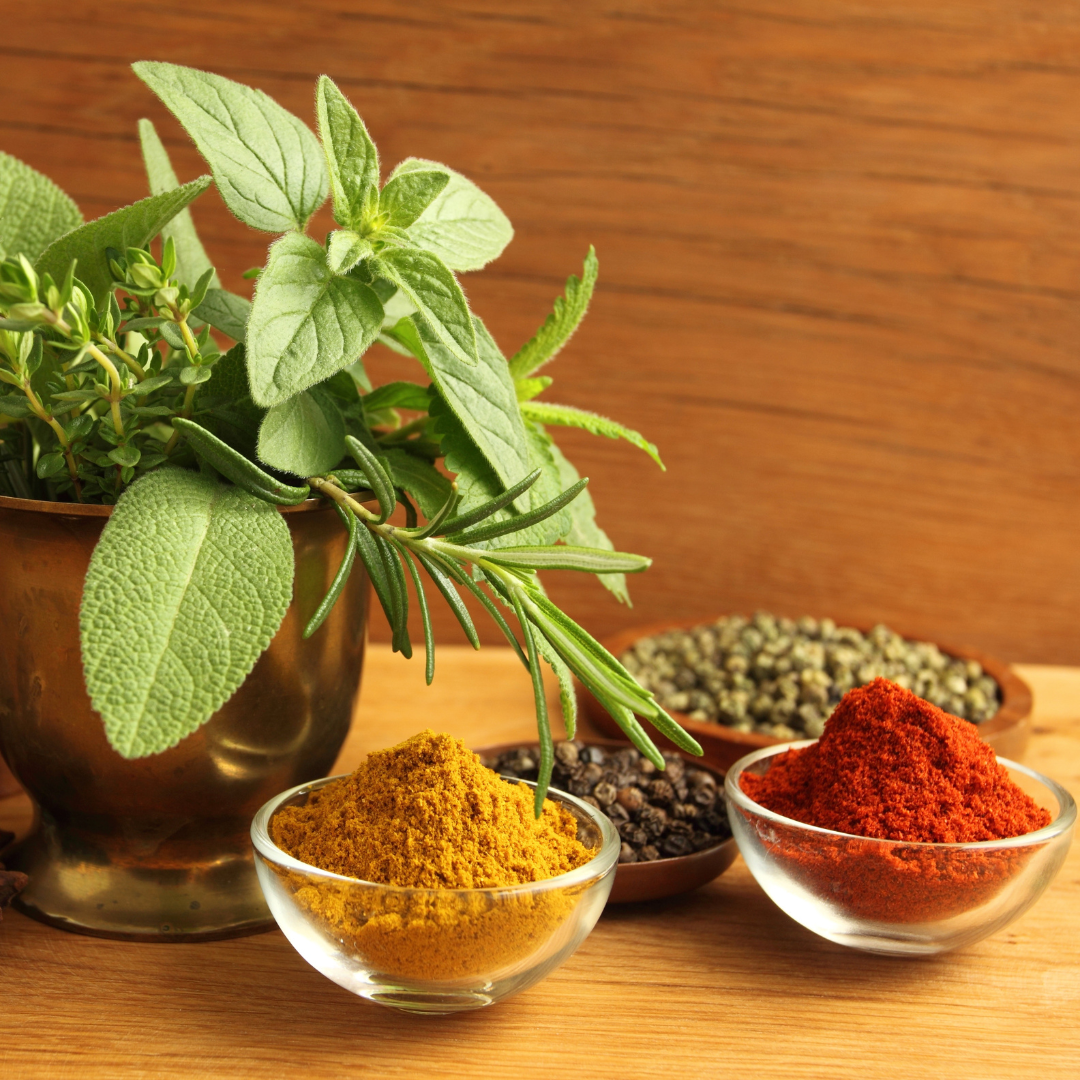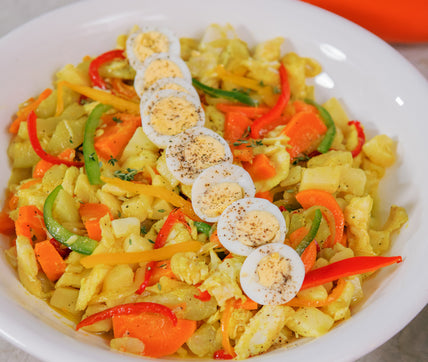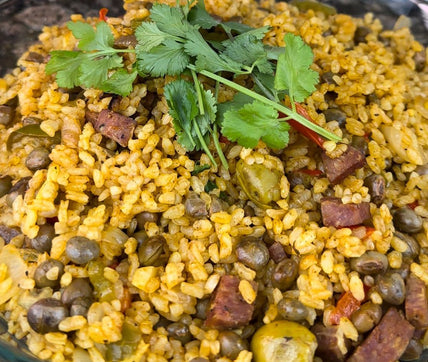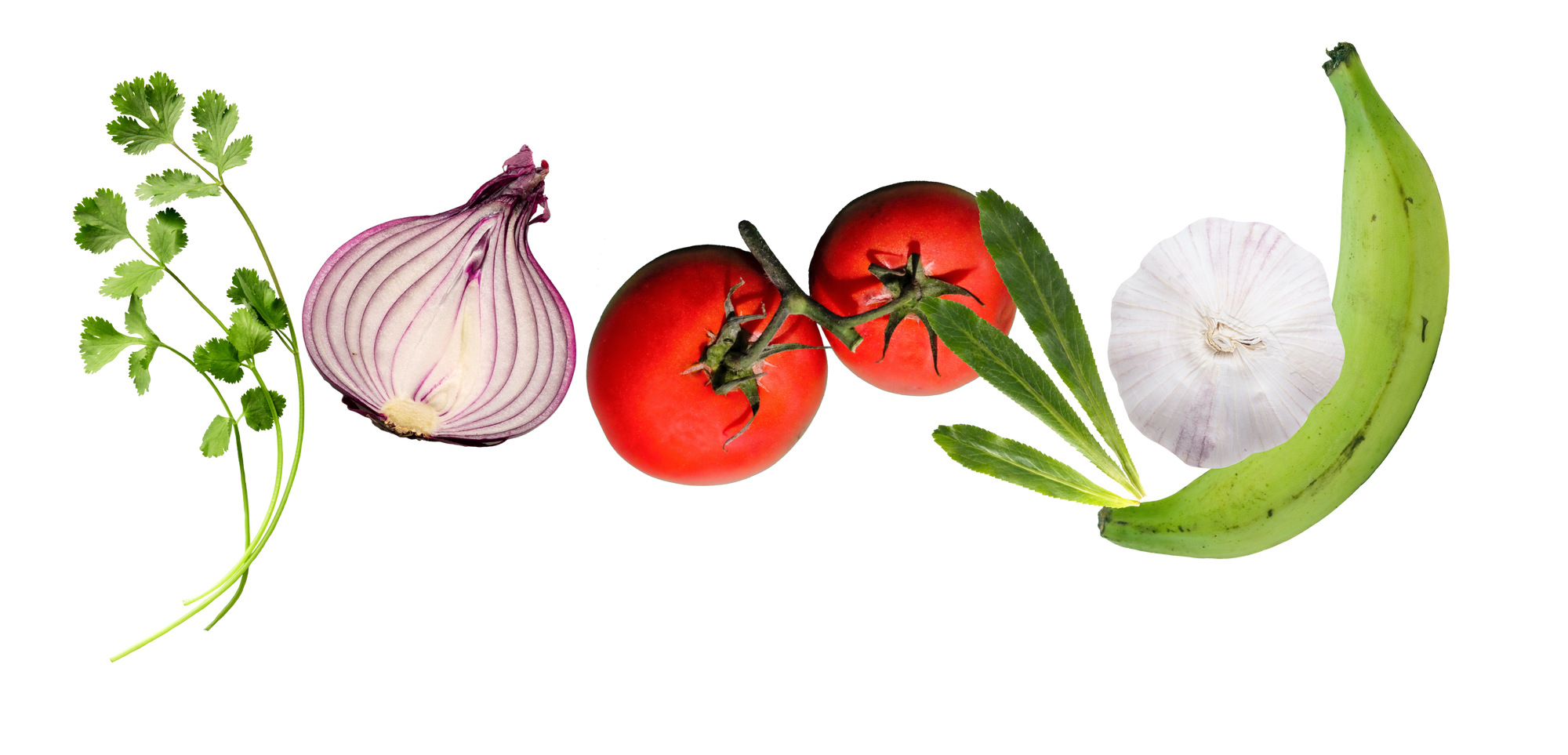
8 Herbs & Spices that Promote Latina Health
NTP Mariu Cabral talks us through eight natural herbs & spices that support Latina health.
By: Mariu Cabral | @mariucabral
Today is International Women’s Day, and we’re taking the opportunity to both celebrate the amazing women in our comunidad and explore ways we can boost our collective health & happiness through our primary love language – food. Here, Nutritional Therapy Practitioner Mariu Cabral shares how various herbs and spices are capable of supporting Latina health against some of the biggest challenges that our mamas, hermanas, y mijas face.
In the U.S. today, there are a number of health challenges that specifically affect Latin women. For example, Latinas are at a higher risk for metabolic disorders, which at the same time makes them at a higher risk for developing Polycystic ovarian syndrome (PCOS), one of the leading causes of female-related infertility. Some of the most common health issues that Latinas face include hormonal imbalances, which can lead to reproductive health issues, and irritable bowel syndrome, (IBS). Thankfully, there are plenty of all-natural ways we can alleviate the effects of these health challenges – especially through the foods that we put into our bodies. So many of the herbs and spices that add flavor to Latin cuisine have beneficial effects on our reproductive & gut health, as well as our stress levels and our mood.
Reproductive Challenges in the Latina Community
Polycystic ovarian syndrome (PCOS) and endometriosis are the leading reproductive health issues that affect Latinas.
PCOS is a hormonal disorder affecting approximately 12% of Latinas. The ovaries of women with PCOS “produce an abnormal amount of androgens”, the male sex hormones. This condition causes unwanted hair growth due to excess testosterone, irregular periods, weight gain, potential infertility, insulin resistance, and more.
Endometriosis is a disease in which the endometrium “thickens”. There is a vast array of symptoms, but the most common are: very painful and heavy menstrual bleeding, back pain, inflammation, and painful intercourse. Though only about 4% of Latinas are officially diagnosed with endometriosis, the number of Latinas struggling with the disorder is likely much higher, as it is a commonly under-diagnosed condition. On average, women who suffer from endometriosis wait between 4 to 11 years to get it properly diagnosed. With such reproductive and hormonal health challenges, comes mental health challenges such as mood swings, anxiety, and depression, which are all associated with premenstrual syndrome (PMS).
IBS in the Latina Community
Another common health challenge for Latinas is irritable bowel syndrome (IBS). IBS is a collection of symptoms that can range from bloating due to food sensitivities to constipation and diarrhea. It is estimated that around 23% of women have IBS, and it consistently affects women across different ethnicities, including Hispanic women/Latinas.
If you have symptoms associated with IBS, take this free gut quiz to get personalized recommendations from me.
How to Promote Better Health in the Latina Community Through Food
The good news is that there are many things Latinas can do to regulate their hormones, improve digestive health, and reduce metabolic dysfunction. It all starts in the kitchen with the right herbs and spices!
Herbs and spices are rich in antioxidants, which help prevent and repair cell damage. Some have anti-inflammatory effects that help us cope with pain, (as is the case of turmeric), others help us with our stress response (saffron) and others even kill bacteria and pathogens in the digestive tract (garlic, oregano…). Let’s get into how herbs and spices can help us heal.
Anti-inflammatory herbs and spices
Many herbs & spices help to reduce inflammation in the body, which allows us to cope with pain from issues like arthritis, reduce the risk for diabetes, and may even lower bad cholesterol. Let’s dive into my three favorite anti-inflammatory spices.
Turmeric
Turmeric is a South-Asian plant that is mostly grown in India. It contains a powerful compound called curcumin, which aids in reducing swelling, relieving pain, and it also has hepatoprotective properties (which means it protects our liver!). In this day and age, there’s no doubt about curcumin’s healing power, given that we have over three decades of scientific data and even more years of anecdotal evidence on the herb.
Cinnamon
Cinnamon is quite magic! It gives a certain sweetness to foods without containing any sugar. But the real superpower of cinnamon is that it can lower blood sugar and improve insulin resistance, which makes it an incredible food for people with Type II Diabetes or PCOS. Sprinkling cinnamon into your daily coffee can help mitigate the jitters and high blood sugar that is associated with that cortisol spike that often comes with that morning cup.
Black Pepper
If you already use black pepper in your cooking, you should feel very proud of yourself. Black pepper is another powerful antioxidant that has been shown to help lower cholesterol levels, reduce inflammation, and improve the availability of other nutrients in your food. For instance, adding black pepper to a turmeric-containing dish improves the availability and absorption of its curcumin– that powerful antioxidant that reduces inflammation and protects against liver damage! You could say that black pepper is the ultimate food enhancer!
Herbs and Spices for Stress and Mood
And though herbs are incredibly high in antioxidants, their benefits do not stop there. Some herbs and spices have adaptogenic properties. An “adaptogen” is a compound that helps our body get back into a baseline state called homeostasis when this has been dysregulated. For example, if we are feeling depressed, the adaptogen won’t make us feel euphoric, but rather, just like the name says, it helps us adapt and brings us back to balance. Adaptogen herbs are very helpful for coping with the mental health challenges that come along with reproductive health issues.
Saffron
Saffron, the same cooking herb that gives paella its distinct color and complex flavor, is very helpful in reducing depression and improving wellbeing. Don’t believe me? Well, a randomized, double-blind, clinical trial (the golden standard when it comes to research) that studied the effects of saffron on mental health proves it! In this study, participants were administered either 30 mg of saffron extract or a placebo every day for 56 days. The researchers used a number of tests to measure mental health and well-being: questionnaires, salivary cortisol levels, heart rate, and more. By the end of this study, the participants who received saffron extract reported reduced depression and improved social relationships.
Licorice
Many of us know licorice for its amazing digestive aid properties, but another very cool thing about it is that it acts on our adrenal glands– yes, those that produce cortisol and adrenaline, among other things: “Licorice assists the adrenals by preventing the breakdown of cortisol, one of the major hormones produced by the adrenal glands to combat stress. Its cortisol sparing effects help in maintaining energy levels which results in a better response to stressful situations.”
Herbs and Spices for Digestion
Previously we discussed how IBS is one of the main health challenges Latinas face today. Experiencing the symptoms associated with IBS: bloating, gas, constipation, etc isn’t only uncomfortable to live with, it also affects our reproductive health. Take the hormone estrogen for example: having excess estrogen in the body (something called estrogen dominance) is associated with long, heavy periods; PMS, water retention, breast tenderness, and more. We excrete excess estrogen (and other hormones) through our feces and when we don’t, they build up in our body and recirculate back to the bloodstream. Can you see now how not having healthy bowel movements impacts not only our periods but an existing PCOS or endometriosis diagnosis? Luckily, there are some herbs and spices we can add to our diet that can help us have smooth digestion.
Oregano
My mother loves to cook with oregano, and that was passed on to me! This is great news because oregano has incredible antibacterial effects. Eating oregano daily can kill bad bacteria in our guts, keeping it robust and preventing symptoms associated with food poisonings, such as diarrhea or vomiting.
Garlic
While it may not technically be an herb, garlic is another powerful antibacterial ingredient, but the best thing about it is that it is also anti-parasitic and anti-fungal. Consuming garlic can help treat and prevent symptoms associated with an overgrowth of candida, a fungus that likes to infect our skin, guts, and vaginas. If garlic causes you to bloat, you might require some stomach acid to properly break this down and other foods. Take the gut quiz to get my personalized recommendations for free.
Sea Salt
Though not technically an herb or a spice, sea salt is more important for digestion than we might imagine! The reason is because sea salt (unlike refined salt) contains electrolyte minerals that hydrate us on a cellular level. Gut issues such as constipation are associated with dehydration. It’s not just enough to chug a ton of water throughout the day, because if that water doesn’t have enough electrolytes minerals, it will not properly hydrate you. There’s where sea salt comes into play. Sprinkle a pinch of sea salt into your water to stay properly hydrated and to kick constipation in the butt!
Something important to note is that herbs and spices are highly potent, therefore going organic is your best bet so you can avoid ingesting synthetic pesticides while using them. Incorporating more of these beneficial herbs and spices, most of which are already prevalent in Latin cuisine, can help promote better reproductive and gut health and help reduce stress related to health issues that affect us Latinas. Which of these herbs and spices do you have in your pantry?
Mariu Cabral is a Nutritional Therapy Practitioner (NTP) who specializes in the gut, particularly irritable bowel syndrome (IBS), acid reflux, and chronic gastrointestinal diseases. She was born in Venezuela to a Venezuelan mother and a Dominican father. After moving to New York at the age of 19, she quickly realized how much of the foods she grew up with were considered "unhealthy" and "greasy" by American standards. Years later, when she became a nutritionist she learned about the cultural biases in dietary guidelines and is now on a mission to empower Latinxs to eat and enjoy our cultural foods because they are healthy, sustainable, and delicious!



